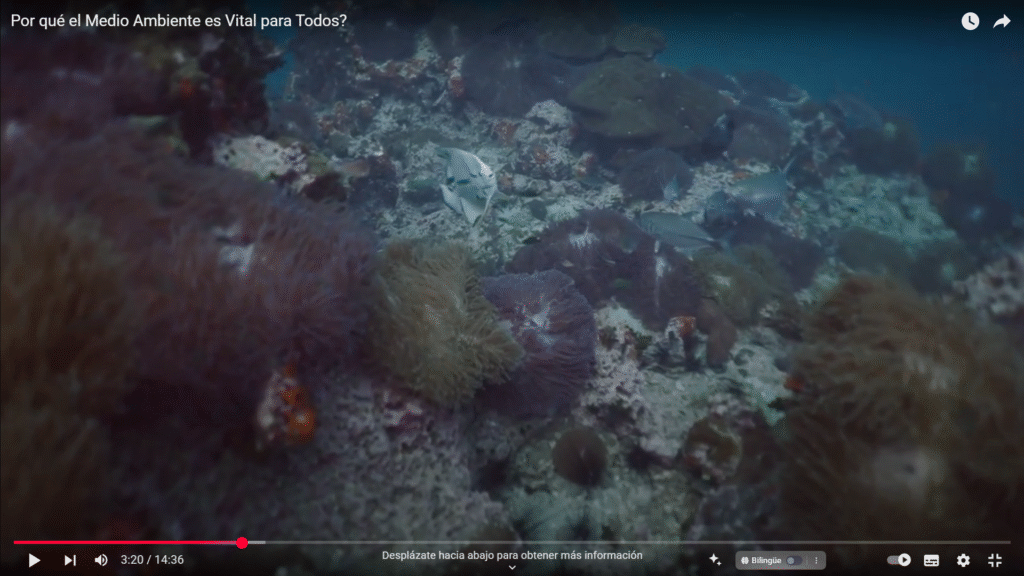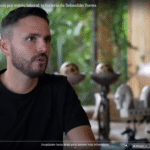The home we all share is at risk. What are you doing to protect it?
We live surrounded by natural wonders, from the trees that give us oxygen to the oceans that regulate the climate. But we often forget that the environment isn’t a distant concept: it’s the air we breathe, the water we drink, and the soil that sustains us. Every action, no matter how small, has a direct impact on the health of the planet and, consequently, on our quality of life.
The good news is that we can all be part of the change. Understanding how different types of environments work and what we can do to protect them is the first step toward a more sustainable future. In this article, you’ll discover how caring for the environment is not only vital for the Earth, but also a powerful way to improve your life and the lives of those around you.
What is the environment and why is it so important?
The environment is everything that surrounds us: air, water, land, animals, plants, and also the spaces we build, such as cities and towns. It is an interconnected system where each element affects the others. From the forests that purify the air to the rivers that supply our homes, everything is united in a delicate balance perfected over millions of years.
When we talk about the environment, we’re not just referring to distant rainforests or deep reefs. It’s also the breeze you feel on your face, the warmth of the sun, the song of a bird, or the park you take your children to. Caring for it isn’t the exclusive responsibility of governments or scientists; it’s a shared responsibility that begins at home.
Key benefits of protecting the environment
- Improves physical and mental health
Breathing clean air, drinking uncontaminated water, and living surrounded by green spaces reduces respiratory illnesses, improves mood, and reduces stress. - Ensure the availability of natural resources.
Fertile soil, clean water, and biodiversity are essential for producing food, medicine, and materials. Protecting these resources ensures a more secure future for future generations. - Combat climate change.
Deforestation, excessive use of fossil fuels, and pollution are the main causes of global warming. Protecting natural ecosystems and reducing emissions helps slow this process. - Promotes a sustainable economy
Organic agriculture, renewable energy, and ecotourism are examples of economic activities that protect the environment and generate employment. - Strengthen your connection with nature and the community.
Participating in green initiatives, planting trees, or cleaning public spaces creates stronger bonds with your surroundings and the people around you.
Practical steps to take care of the environment from today
- Reduce, reuse, and recycle.
Before buying something new, ask yourself if you really need it. Opt for reusable products and separate your waste properly. Recycling paper, glass, plastic, and metals helps reduce pollution and energy consumption. - Save water and energy at home.
Turn off the tap while brushing your teeth, fix leaks, install LED bulbs, turn off unnecessary lights, and unplug electrical appliances you’re not using. - Choose sustainable transportation.
Walk, bike, or use public transportation whenever possible. Carpooling is also a good way to reduce your carbon footprint. - Eat responsibly.
Support local farmers, choose seasonal foods, and reduce your meat consumption if possible. A more sustainable diet is not only good for the planet, but also for your health. - Plant trees and protect green areas.
Trees purify the air, regulate temperature, and provide shelter for many species. Participating in reforestation campaigns or taking care of your neighborhood park makes a difference. - Support environmental initiatives.
Get informed and participate in community projects, environmental NGOs, or local campaigns. Your voice can also have a political and social impact. - Educate and share knowledge.
Teach your children, friends, or neighbors the importance of caring for the planet. Sharing useful information creates a chain of awareness that multiplies.
Additional tips for a greener life
- Choose products with less packaging or made from recycled materials.
- Avoid excessive use of single-use plastics.
- Use environmentally friendly detergents and cleaning products.
- Consider installing solar panels or rainwater harvesters if you have the opportunity.
- Design your home or workspace with natural elements: sunlight, indoor plants, and sustainable materials.
Additionally, if you live in a city, you can get involved in projects like urban gardens or vertical gardens. These not only beautify the environment but also improve air quality and promote healthier eating.
The Earth gives us everything: food, water, air, breathtaking landscapes, and a home where life flourishes. But it also needs us. Caring for the environment is not a fad or an option; it is an urgent need that defines our future.
You don’t need to make huge sacrifices. Small, consistent actions that, when combined, create a gigantic change are all it takes. Choose to be part of the generation that protected the planet, not the one that destroyed it. Let’s plant the seeds of a greener, fairer, and healthier world today.
Start today. Every choice counts. The planet needs you. 🌍💚
Naturally integrated keywords: environment, caring for the environment, protecting nature, environmental impact, natural environment, urban environment, rural environment, aquatic environment, recycling, renewable energy, sustainability.
Would you like this article published on your blog, website, or channel in a format adapted to technical SEO (meta tags, slug, etc.)? I can help you prepare it as well.



